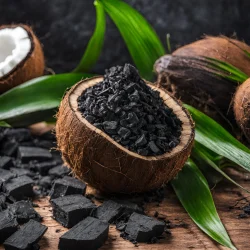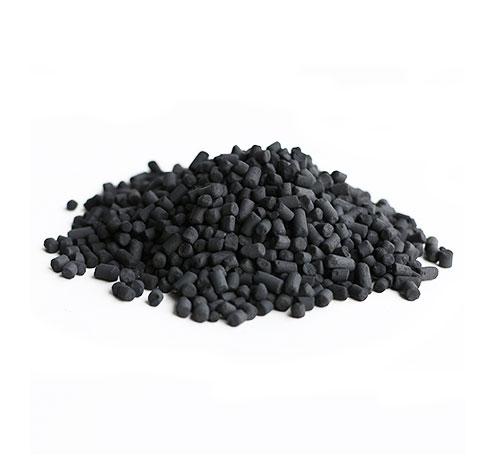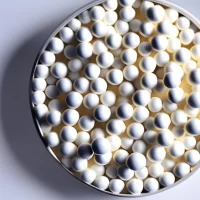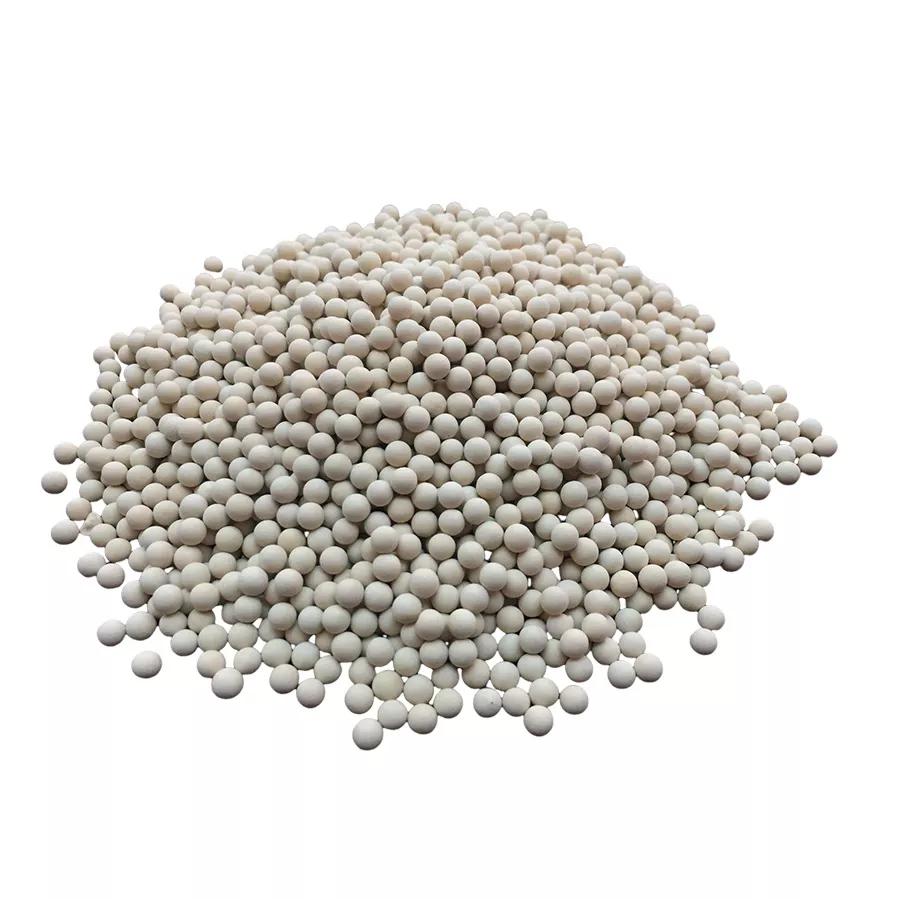Coconut-activated charcoal is one of the most effective natural adsorbents. It is widely used in water filtration, air purification, and medical applications. This high-performance material, derived from coconut shells, offers superior adsorption capacity compared to other carbon sources.
Coconut-activated carbon plays a crucial role in industrial filtration systems, removing harmful contaminants from liquids and gases. Due to its sustainable production process, it has become the preferred choice for eco-conscious industries.
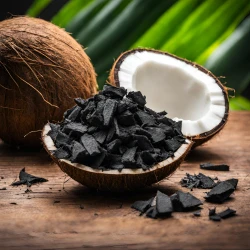
Contents
What Is Coconut Activated Carbon?
Coconut-activated carbon is a high-performance adsorbent obtained from coconut shells through carbonization and activation. This process creates a highly porous structure that removes impurities, toxins, and harmful substances. Activated coconut shell charcoal is widely used for its excellent adsorption efficiency, renewable source, and chemical-free purification capabilities.
Why Choose Coconut Activated Carbon?
✅ High Adsorption Efficiency:
Coconut-activated charcoal has a microporous structure, giving it a surface area of up to 1,500 m² per gram, making it more effective than other carbon types.
✅ Sustainability & Eco-Friendliness:
Unlike coal-based activated carbon, activated coconut shell charcoal is a renewable and biodegradable resource with a 60% lower carbon footprint.
✅ Low Ash Content:
Coconut activated carbon has a 15-20% lower ash content than wood—or coal-based carbon, making it cleaner and more efficient for industrial and medical use.
✅ Chemical-Free Purification:
Unlike synthetic filters, activated coconut shell charcoal naturally removes toxins without adding harmful chemicals.
Key Applications of Activated Coconut Shell Charcoal
1. Water Filtration & Purification
🔹 Coconut-activated carbon is used in household and industrial water filters, reverse osmosis systems, and municipal water treatment plants.
🔹 Removes:
✔ Chlorine & Chloramines
✔ Heavy Metals (Lead, Mercury, Arsenic)
✔ Pesticides & Organic Contaminants
📌 2025 Update: Studies show that activated coconut shell charcoal can remove 99% of lead and 90% of microplastics from contaminated water sources.
2. Air Filtration & Odor Control
🔹 Used in HVAC systems, air purifiers, and Tesla’s HEPA-grade filters to remove airborne pollutants.
🔹 Absorbs:
✔ Volatile Organic Compounds (VOCs)
✔ Toxic Gases & Industrial Pollutants
✔ Smoke & Chemical Fumes
📌 2025 Research: NASA’s air purification technology uses coconut-activated charcoal to enhance air quality in space missions.
3. Medical & Pharmaceutical Uses
🔹 Hospitals worldwide use coconut-activated carbon in emergency treatments for poisoning and overdose cases.
🔹 Benefits include:
✔ Toxin Absorption – Neutralizes 85% of ingested toxins within 30 minutes.
✔ Digestive Health – Helps reduce bloating and supports detoxification.
4. Skincare & Personal Care
🔹 Activated coconut shell charcoal is commonly found in beauty products like:
✔ Face masks & scrubs – Removes impurities and excess oil.
✔ Toothpaste – Naturally whitens teeth by removing stains.
✔ Shampoos & body washes – Cleanses deeply and detoxifies the scalp.
📌 2025 Trend: Coconut activated carbon is now a key ingredient in organic cosmetics by brands like L’Oréal and The Body Shop.
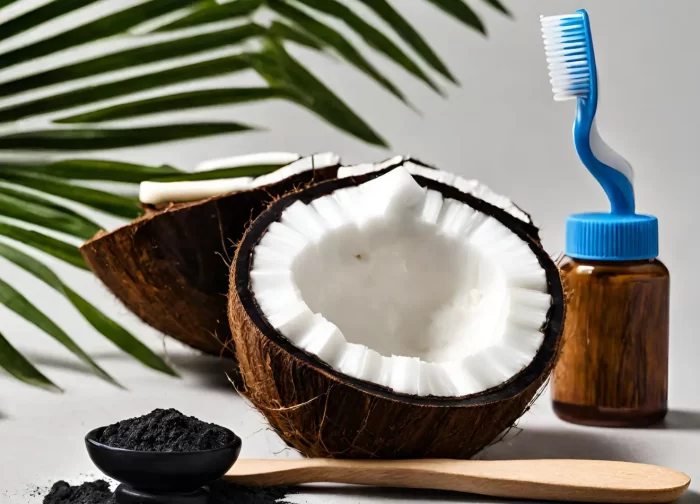
Recent Research & Market Growth
- The Global Activated Carbon Market Report (2025-2030) predicts a 9.2% annual growth rate for coconut-activated carbon, reaching $9.7 billion by 2030.
- A 2022 study in the Journal of Environmental Science & Technology confirmed that activated coconut shell charcoal removes 99% of lead and 90% of industrial pollutants from water.
- The World Health Organization (WHO) states that drinking water can have more than 90% of its microplastics removed by using activated carbon filters.

Frequently Asked Questions About Coconut Activated Carbon
1. Is Coconut Activated Carbon Better Than Coal-Based Carbon?
Yes! Coconut activated charcoal has a higher adsorption capacity, a more sustainable production process, and a lower ash content than coal-based carbon.
2. How Long Does Coconut Activated Charcoal Last in a Water Filter?
It depends on usage, but most filters containing coconut-activated carbon last 3-6 months before needing replacement.
3. Can Activated Coconut Shell Charcoal Be Used for Detox?
Yes! Activated coconut shell charcoal is commonly used in medical treatments to absorb toxins and aid digestion.
4. Is Coconut Activated Carbon Safe for Skincare?
Absolutely! Many skincare brands use coconut-activated charcoal in face masks and cleansers due to its oil-absorbing and detoxifying properties.
Conclusion
Coconut-activated carbon continues to gain popularity due to its renewable nature and high adsorption properties. Industries from healthcare to environmental protection rely on this material for sustainable and effective purification.
Activated coconut shell charcoal is a superior alternative to traditional carbon sources, ensuring cleaner water, fresher air, and safer consumer products. As technology advances, its applications will expand, reinforcing its role as a leading purification agent.
